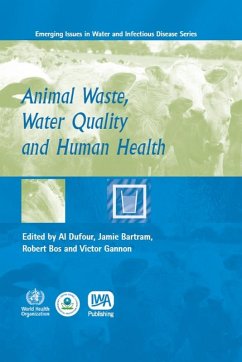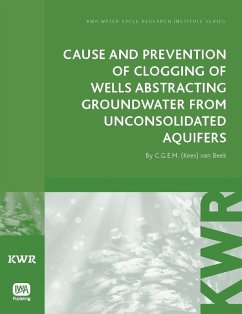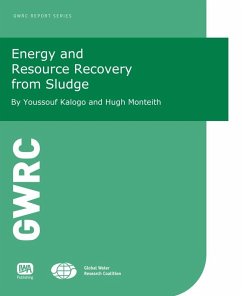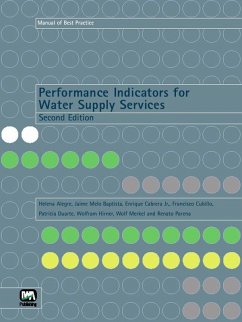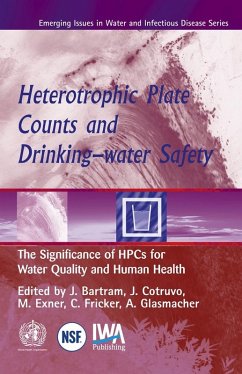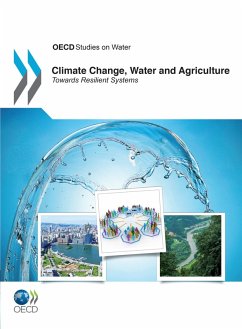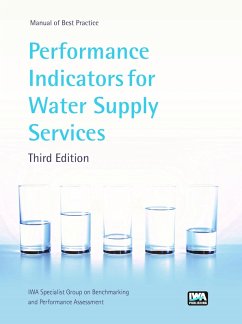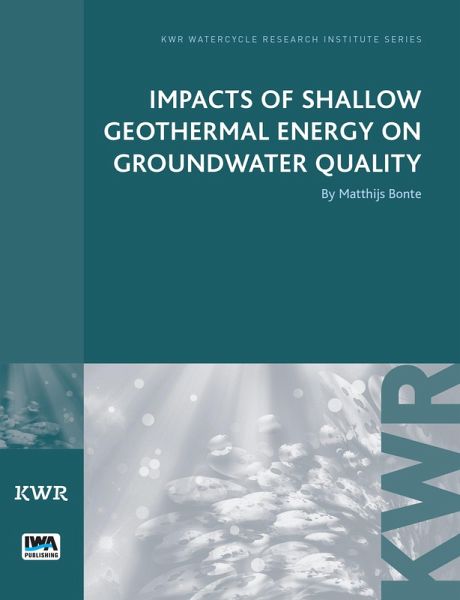
Impacts of Shallow Geothermal Energy on Groundwater Quality (eBook, PDF)

PAYBACK Punkte
56 °P sammeln!
The use of shallow geothermal energy (SGE) systems to acclimatize buildings has increased exponentially in the Netherlands and worldwide. In certain areas, SGE systems are constructed in aquifers also used for drinking water supply raising the question of potential groundwater quality impact. Impacts of Shallow Geothermal Energy on Groundwater Quality provides a hydrochemical and geomicrobial overview of the effects of ground source heat pumps and aquifer thermal energy storage. The area is investigated with field and laboratory experiments, and reactive transport models, showing that shallow...
The use of shallow geothermal energy (SGE) systems to acclimatize buildings has increased exponentially in the Netherlands and worldwide. In certain areas, SGE systems are constructed in aquifers also used for drinking water supply raising the question of potential groundwater quality impact.
Impacts of Shallow Geothermal Energy on Groundwater Quality provides a hydrochemical and geomicrobial overview of the effects of ground source heat pumps and aquifer thermal energy storage. The area is investigated with field and laboratory experiments, and reactive transport models, showing that shallow geothermal energy systems can influence groundwater quality in a number of ways. Most prominent in open ground source heating systems operating at low temperature (<20°C) is the physical mixing of deep and shallow groundwater of different quality distorting the natural water quality stratification in aquifers. At a temperature of 25°C and beyond certain trace elements were observed to mobilize in laboratory experiments, and beyond 40°C redox conditions change significantly while the microbial community shift towards a thermophilic community.
Based on the results of this research, guidelines are presented for monitoring and permitting of SGE systems. The book is a useful resource for regulators of these systems, water companies and installers of the SGE systems.
Author: Matthijs Bonte, Amsterdam, The Netherlands
Dieser Download kann aus rechtlichen Gründen nur mit Rechnungsadresse in A, B, BG, CY, CZ, D, DK, EW, E, FIN, F, GR, HR, H, IRL, I, LT, L, LR, M, NL, PL, P, R, S, SLO, SK ausgeliefert werden.




